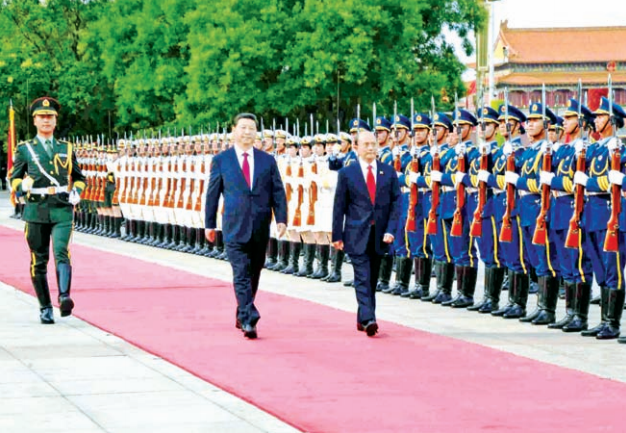China’s Defence Minister has urged Burma to maintain stability on their common border as the Southeast Asian country prepares for what Beijing hopes will be successful elections in November, the defence ministry said on Tuesday.
Burma will hold an historic election in November, when the military-backed ruling party will compete with the ascendant National League for Democracy (NLD) party of Nobel laureate Aung San Suu Kyi in the first free national vote in 25 years.
Since taking power in March 2011, Burma’s reformist government has sought to decrease the heavy dependence on China that grew when Burma was a pariah state under military rule.
Beijing has watched nervously as the United States lifted some sanctions and engaged with the semi-civilian government, although China has also been keen to engage other political parties such as the NLD.
China’s Defence Minister Chang Wanquan told Burma’s deputy commander-in-chief General Soe Win, who was visiting Beijing for military talks, on Monday 21 September that China and Burma should “jointly maintain stability in the border area”.
[related]
Ties between Burma and China soured this year over fighting between Burma’s military and the ethnic Chinese Myanmar National Democratic Alliance Army (MNDAA) along part of the shared border.
Chinese citizens have been killed by bombs and stray shells falling inside China’s territory, angering Beijing.
“China supports Burma’s promotion of its domestic political and national reconciliation process and the successful holding of elections according to schedule, in order to achieve long-term stability and development,” Chang was quoted as saying.
China will be paying close attention to the election, worried that any change in government could affect its investments in Burma, particularly key oil and gas pipelines and hydropower schemes.
In June, Chinese President Xi Jinping told Suu Kyi in Beijing he hoped Burma would maintain a consistent and positive position on relations, regardless of any changes in Burma’s domestic politics.
Read more about the MNDAA here.



